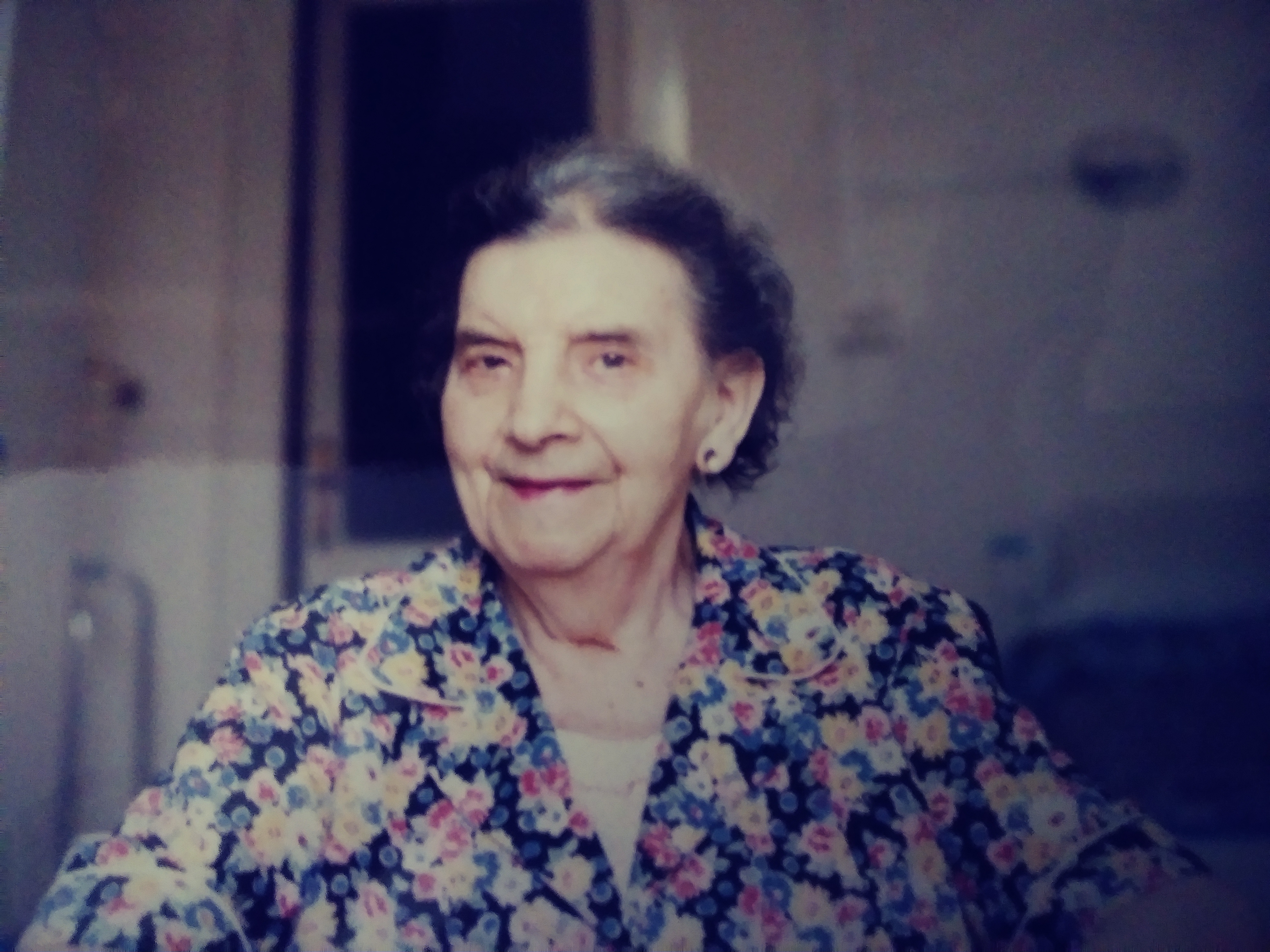View this post on Instagram
A serendipitous moment.
It’s what I originally called my unexpected and joyful encounter with Corneglia.
And while it really did come about by simple chance, I have only now come to think of her presence in my life as a Jungian moment of synchronicity, of “meaningful coincidence,” pregnant with life lessons that would only give birth and make themselves known to me many years later.
I knew so little then about the more profound depths of life, that heightened consciousness that only comes with time and experience.
So, it was no coincidence that by knowing Corneglia I not only stepped into a moment in time where Italy’s family-centered culture was experiencing vast changes, but over time discovered the implications of her life story in my own.
It was 1989, and I had just moved into my new furnished flat in Trieste, that former Austro-Hungarian, but now Italian, city of old.
Nestled in Italy’s northeast corner, hugging the Adriatic coastline, and just a short skip from Slovenia, you could watch the fishermen come home in the darkness of night. Each carried a lantern in the center of their small boats as a guiding light to port. And every night, the Adriatic became a sea of lights bouncing on a glittering horizon. I don’t think I would have imagined a scene more beautiful. It only needed an orchestra with a Verdi crescendo to make it more spectacular.
I started my expatriate life setting up the kitchen, decorating the walls with photos of family, friends, and maps of the Central and Eastern European countries I would soon visit as walls came down and occupying forces were on the retreat.
The predominant color was orange, complete with an orange strainer for what was to become a daily pasta regimen. It was a perfect kitchen, but there was no apriscatole (tin can opener) for my can of soup on my first evening in Trieste.
I believe now that serendipitous moments arrive to awaken us, to beckon us forward on our journey and widen our world. My moment was one to be neighborly.
I walked to the front door directly across from mine, knocked, and there she was, la signora (Mrs.) Corneglia di Rossi. She was so tiny, was my first impression, a tiny elderly but spry woman who maneuvered quite well with her walker. I introduced myself in the little Italian I knew and showed her my can of soup.
Corneglia immediately grasped what I needed, sauntered to her kitchen, and came back with the tin can opener and a bottle of grappa, Italy’s better version of brandy. It was the beginning of a wonderful friendship.
Over the course of my two years there, Corneglia and I met often, each time an excuse for her to bring out her grappa and chat about the world, hers and mine. I learned she had been a widow for several years and had no children. She never mentioned why, and I often wondered how World War II must have interrupted her daily life. Italy’s alignment with the Axis powers meant that bitter partisan warfare tremendously affected Trieste during that time, with repercussions to this day. It was also ground zero for the extermination of Italian Jews when an old rice factory on the outskirts almost overnight became a crematorium.
As a young, married woman, how did this affect her? Was she also impacted by declining birth rates so common in wartime? How did she become so separated from family?
Whatever her untold story, Corneglia, with her increasing frailty, lived alone and isolated in her apartment. She never went outside. No feel of sunshine on the skin, no trips to the local panaderia or trattoria, no commiserating with neighbors in the central piazza (plaza).
Trieste was a city with a large population of elderly pensioners, just like Corneglia. Older generations in Italy, as in many parts of the world, relied heavily on children and extended family to provide assistance and dignity for the elderly as they grew more frail and infirm. With shrinking family sizes, however, the growing isolation of the elderly is now practically a worldwide phenomenon, with research still in the early stages regarding these “elder orphans.”
Huge postwar apartment complexes, for example, were built in Japan after the war to accommodate the growing baby boom. The government encouraged families to live in these complexes to maximize economic progress, tearing apart the extended family culture that had historically sustained Japanese society. Referred to as “the lonely deaths,” some Japanese elderly were found deceased in their small apartments years after they had died.
In time, Corneglia’s world slowly and inevitably changed, and she confronted those changes, except for an older Yugoslavian couple she had befriended in the apartment building (and I came to know as well), with little to no support.
The concept of elder care outside of family, unfortunately, was one in its infant stages. Few choices, if any, existed to address the needs of homebound elderly without support, and a professional caregiving industry had not yet evolved, though it is thriving now.
If, as Ram Dass says, “We’re all just walking each other home,” Corneglia was quite alone. She eventually succumbed to dependence and assistance, requiring institutionalized care as increasing age, with atrophied limbs that ended her mobility, no longer allowed her to care for herself anymore. An ambulance finally moved her to a care facility away from her neighborhood. She remained in a bed on an upstairs floor with no elevator and very little privacy.
Getting ready to return to California in 1991, I made my last visit to see Corneglia. We both had tears in our eyes and exchanged the multitude of kisses so common in Italian greetings and goodbyes. “Qui sono condannata in questo posto (Here I am condemned to this place)” were some of her last words to me.

I never saw Corneglia again.
Her final words remained forgotten for many years, but they took root and waited for the right time to bloom and deliver their meaning.
For it is her I think of as I consider my own frail parents, ages 88 and 91. Like Corneglia, they have made the passage from independence to dependence and assistance, a difficult passage, at best, for all elderly. “You just never think it will come to pass,” remarked my father.
A huge turning point came when my mother fell and broke her neck a few months ago, resulting in a C2 cervical fracture, a fracture that typically results in death or paralysis. But after surgery and a 10-day hospital stay followed by six weeks in a residential-care facility, my mother headed home. That’s right. She came home to continue her recovery.
Her children and even my father questioned whether home was the right place for them both, given their frail conditions (my father is diabetic). We had begun looking at assisted-living facilities. But my mother intuitively and adamantly insisted on the familiarity of home rather than institutional care. She knew.
In a short time, I came to realize how right her decision was.
In stark contrast to Corneglia’s story, she came back to the home she had been living in for 50 years, to a huge family (seven children), to professional caregivers, to people she could walk home with, even if with a walker. My daughter and I live with them, and it makes a difference. Studies show that having children and at least one daughter helps the elderly navigate the vicissitudes of advanced age.
My younger sister is their very assertive medical advocate, taking notes like a stenographer and questioning their primary care physician at every step. They don’t miss a check-up appointment. My older brother still takes my dad to see his beloved Dodgers play baseball, though less frequently as the long walk becomes increasingly more difficult. Children and grandchildren constantly stop by. They have now held their first great-grandchild in their arms.
Most importantly, my father is there, and the fact that they have each other makes them more willing to embrace and endure the ongoing challenges of aging and the reality of mortality. Their love endures and grows, their story continues, and they are still its primary authors.
Then why is Corneglia so important now?
Well, we again live in an age of smaller family sizes, and one, in so many ways, with weaker community bonds.
I am a single parent. Many of my friends, whether married or unmarried, have no children, or very few children. I don’t know a soul, including myself, who has the desire to be an “elder orphan,” or to experience the loneliness of Corneglia’s later years. It is a hidden fear for many, especially as we continue to age, and for many of us, our social circle tends to become smaller.
Thus, Corneglia’s story is a cautionary tale. I know now, that as sure as the sun will set, aging shall come to pass before we know it.
How, then, do we continue to be the authors of our own stories and not walk home alone?
It is a difficult question, the more difficult as frailty and infirmity afflict the aged. Yet while we can, are not all of us called to bloom where we are planted, to constantly renew ourselves, to enrich and add to our life story?
My sisters and I often talk about living together in our later years so no one is alone. My childhood friend Guadalupe wants me to travel with her to Cartagena when we’re in our 70s and open a hamburger stand. She thinks we’ll make a killing. These conversations have enormous value. They are calling us to map a vision for our lives as we move forward, lives rich in vitality.
Lastly, we so overvalue our independence. Yet the true and most crucial calling for those aging alone or with smaller families may be one of interdependence, the beauty of community, connectedness, and a greater reliance on togetherness. There will always be semi-independent living communities, but there are also more creative lifestyle choices: cohousing communities, shared housing arrangements, or smaller group homes with a common caregiver.
What might have happened if all those Japanese elderly living alone, or any elderly person living alone for that matter, had chosen to share an apartment with a neighbor?
I am so grateful for the short time I had with Corneglia. I know she would have wished to write her own story differently and make the walk home holding someone’s loving hand. Her final goodbye resounds powerfully within. Wherever she is within the mists of time, that chance encounter, that moment of synchronicity, has meant more to me than she will ever know.
~






Read 4 comments and reply